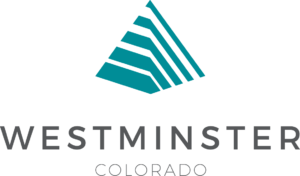Urban Land Conservancy (ULC) completed the purchase of two adjacent properties at 3440 W 71st Place and 7100 Lowell Blvd., totaling 5.5 acres at the Westminster Station along RTD’s B Line Commuter Rail. These acquisitions, known as Westminster Station Transit Oriented Development (TOD), will be developed to support the City of Westminster’s Station Area Specific Plan. ULC acquired these properties in advance of anticipated future market rate development forces, likely to attract larger redevelopment efforts around the station.
“ULC enjoys a strong relationship with the city of Westminster and the Westminster Economic Development Authority, and we look forward to working with the community, and additional partner agencies to transform these 5.5 acres into a vibrant neighborhood center,” stated ULC’s Senior Vice President Debra Bustos. “This future transit-oriented community will require significant support for successful development to take place, and ULC is thrilled to be leading this impactful venture.”
Both properties were acquired using the Metro Denver Impact Facility (MDIF), a partnership between ULC, FirstBank, Colorado Health Foundation, The Denver Foundation, the Colorado Trust, Colorado Housing and Finance Authority and The Piton Foundation. The $50 million Facility is a revolving loan source created to support ULC’s real estate acquisitions including affordable housing, nonprofit facilities, schools, and community spaces. Westminster TOD was ULC’s sixth purchase using MDIF.
“This acquisition provides a rare opportunity to not only maintain affordability in a growing, popular area, but acquire land directly next to a commuter rail.” said Stu Wright, Executive Vice President, FirstBank. “Westminster TOD will become a mixed-income and mixed-use community, where residents will have access to jobs, education, healthcare and other critical needs without depending on an automobile. This is exactly the kind of equitable development that FirstBank is excited to support.”
“Colorado’s accelerating economy requires bold action to ensure hard-working families aren’t left behind and have access to affordable housing,” said Dave Younggren, President and CEO of The Piton Foundation. “ULC has a proven track record of developing equitable communities, and we are confident that their forward-thinking investment in the Westminster TOD will benefit families for years to come.”
The 58-acre transit-oriented Westminster Station Area is poised for growth in the coming years. RTD’s B Line currently has the highest ridership in the region, surpassing projections by more than three times for an estimated daily ridership of 1,800 people. Future expansion of the light rail will connect Westminster North to Broomfield, Louisville, Boulder, Gunbarrel and Longmont. In addition to commuter rail expansion and station area development, the area is also master-planned to include retail, residential and office development with the first phase being Westminster Station Park, a 40-acre park south of the station that will include a nature play park and a bike trail. It is estimated that more than $76 million of public improvement dollars will be spent in the Westminster Station area.
“We’re thrilled to partner with ULC to help ensure that individuals and families at all income levels will benefit from the proximity to mass transit, as well as multimodal transportation options,” said Jenni Grafton, Housing and Transit Oriented Development Manager for the City of Westminster. “This community investment represents a pivotal step to building a compact, walkable neighborhood with a balanced approach to housing that connects residents with jobs, services, and opportunities throughout the area.”
ULC plans to initiate a community engagement process in the near future to give local residents and stakeholders a voice in the master planning efforts. Development plans are intended to include affordable housing and community serving commercial and retail space. ULC will retain ownership of a portion of the site in a Community Land Trust (CLT), ensuring permanent affordability and generations of community benefit. As ULC formalizes its commitment to environmental sustainability, developers using eco-friendly materials and green building practices will be prioritized.
Established in 2003, Urban Land Conservancy is a nonprofit organization that uses real estate as a tool to benefit urban communities in metro Denver and protect affordability in perpetuity through a 99 year ground lease. ULC preserves, develops and invests in place-based real estate including affordable housing, nonprofit commercial space, community centers and schools. urbanlandc.org
